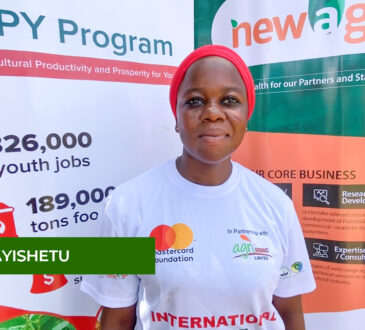Unlocking Opportunities: How Africa and Ghana can leverage Saudi Arabia and UAE oil production for sustainable development

In the global energy market, Saudi Arabia and the United Arab Emirates (UAE) are powerhouses, boasting vast crude oil reserves, advanced technology, and substantial capital investments in energy production. Africa, particularly Ghana, faces the dual challenge of fluctuating oil prices and energy supply constraints in its pursuit of sustainable development. By forging strategic partnerships with these major oil producers, Africa can unlock significant economic and developmental opportunities. Leveraging the oil production capabilities and expertise of the Gulf nations can enhance energy security, attract critical investments, and drive economic growth, positioning Ghana and the broader continent for a more resilient and prosperous future.
The Oil Landscape: Saudi Arabia and UAE’s Global Influence
Saudi Arabia, as the leading member of OPEC (Organization of Petroleum Exporting Countries), produces over 9 million barrels per day (bpd) of crude oil. The UAE, another key player, outputs around 3 million bpd. These countries are not only prolific producers but also influential in shaping global oil markets through pricing and supply decisions.
For instance, in recent data from 2024, Saudi Arabia’s oil exports reached a three-month peak of 5.75 million bpd. Similarly, the UAE’s non-oil trade performance soared, achieving AED 1.4 trillion in the first half of 2024. These figures illustrate the robust nature of their economies, driven by diversified investments in both oil and non-oil sectors.
Current Oil Production and Export Landscape
Saudi Arabia and the UAE are among the world’s leading oil producers. In September 2024, Saudi Arabia’s crude oil exports reached a three-month peak of 5.751 million barrels per day (bpd), marking an increase of 0.080 million bpd from August. However, the country’s production slightly decreased to 8.975 million bpd during the same period. The UAE has also demonstrated robust performance in its non-oil foreign trade, achieving a record AED 1.4 trillion (US$381.17 billion) in the first half of 2024.
Africa-Gulf Economic Relations
Over the past decade, Gulf states have emerged as significant investors across Africa, establishing numerous trade deals that benefit both regions. In January 2024, Saudi Arabia signed agreements with four African countries to explore mining partnerships, exemplifying the deepening economic ties. Ghana, in particular, has seen substantial economic interactions with the UAE, with exports amounting to US$1.71 billion in 2023.
Africa’s Energy and Developmental Needs
Africa’s growing economies are hindered by limited access to affordable energy, fluctuating oil import costs, and underdeveloped refining capacity. Ghana, despite having oil reserves, imports a significant share of refined petroleum products due to inadequate refining infrastructure. This dependence exposes it to global oil price volatility.
Unlocking Strategic Partnerships and Opportunities for Sustainable Development
Energy Security and Infrastructure Development
Collaborating with Saudi Arabia and the UAE can lead to investments in energy infrastructure, particularly in oil refining and storage facilities. Establishing joint ventures with Gulf companies to build modern refineries in Ghana and other African countries will reduce the reliance on imported refined petroleum. Saudi Aramco, the world’s largest oil company, has experience in large-scale refining projects, making it an ideal partner.
Attracting Investment for Diversified Economies
The UAE’s strategic investments in non-oil sectors, including renewable energy and technology, align well with Africa’s diversification goals. Similarly, the Gulf Cooperation Council (GCC) countries are actively pursuing economic diversification beyond oil, with investments across agriculture, mining, and infrastructure. For example, in March 2024, an Emirati company acquired a 51% stake in Zambia’s Mopani Copper Mines, highlighting the potential for stimulating local economies, job creation, and knowledge transfer. In January 2024, Saudi Arabia also demonstrated its interest in broader economic engagement by signing agreements with African countries to explore mining and infrastructure partnerships. For Ghana, significant opportunities exist in agricultural modernization and mineral processing sectors that Gulf investments can enhance. Additionally, the free trade environment established by the African Continental Free Trade Area (AfCFTA) positions Ghana as a strategic gateway to the larger African market, making it an attractive destination for Gulf partnerships.
Trade Expansion through Free Trade Agreements
The African Continental Free Trade Area (AfCFTA), established in 2019, aims to eliminate tariffs and harmonize trade laws among member countries. This framework is anticipated to boost Africa’s GDP significantly and increase foreign direct investment by 111% by 2035. Ghana’s active participation in AfCFTA positions it to attract lucrative investments from the Gulf region to sustain development.
Technology and Knowledge Transfer
Gulf countries have advanced technologies in oil extraction, refining, and renewable energy. Partnering with them can foster skills development and technology transfer in critical areas. Establishing joint research centers or training programs with Saudi and UAE institutions can accelerate local capacity building.
Trade and Market Expansion
Through trade agreements, Ghana can position itself as a hub for Gulf exports to West Africa. Saudi Arabia’s Vision 2030 strategy includes expanding trade partnerships with Africa. Similarly, UAE’s economic diversification initiatives emphasize trade and investment in emerging markets. By becoming a gateway for Gulf goods and services, Ghana can boost its logistics sector, enhance export capabilities, and create jobs. The AfCFTA framework also offers the opportunity to negotiate preferential terms that reduce trade barriers and improve market access. In turn, Gulf countries benefit from smoother entry points into African markets, fostering mutual economic growth.
Policy and Governance Considerations
To attract and sustain investment, Ghana and other African nations need to:
Strengthen Regulatory Frameworks that Guarantee Investment Protection: A strong regulatory environment ensures that both local and foreign investments are safeguarded. Establishing clear policies on property rights, taxation, and profit repatriation can build investor confidence. Regulatory bodies must be empowered to enforce rules transparently, reducing bureaucratic red tape and corruption. Encouraging public-private partnerships (PPPs) with legal guarantees for private sector participation in large infrastructure projects is another key approach to securing long-term investment.
Enhance Transparency and Governance in the Energy Sector: Transparent governance minimizes the risks associated with mismanagement of oil revenues. Implementing best practices in public financial management, such as publishing oil revenue data and spending reports, builds public trust. Independent regulatory oversight and anti-corruption measures are crucial. Establishing mechanisms for community participation and benefit-sharing agreements ensures that local populations receive a fair share of resource wealth, contributing to social stability and equitable development.
Streamline Processes for Establishing Joint Ventures and Partnerships: Simplifying administrative procedures for licensing and business registration reduces delays and transaction costs. Ghana can adopt digital platforms to facilitate faster approvals and permit applications, enhancing efficiency. Creating a one-stop investment center that provides comprehensive support services for foreign investors can also attract more partnerships. Clear guidelines on profit-sharing, technology transfer, and local content requirements can encourage mutually beneficial collaborations with Gulf partners.
Conclusion
The vast oil resources and economic clout of Saudi Arabia and the UAE offer Africa and Ghana transformative opportunities. By strategically engaging in partnerships, Africa can develop resilient energy systems and advance economic diversification. These collaborations promise investment in infrastructure, technology transfer, and enhanced trade flows. To maximize benefits, African countries must implement sound governance frameworks and transparent regulatory systems. The time to act is through proactive engagement, visionary policies, and collaborative ventures, the promise of oil wealth can be harnessed as a driver of sustainable and inclusive prosperity for future generations.
By Seade Caesar, Msc.,CGIA,Ch.E. Executive Director of Africa Global Policy & Advisory Institute (AGPAI)







